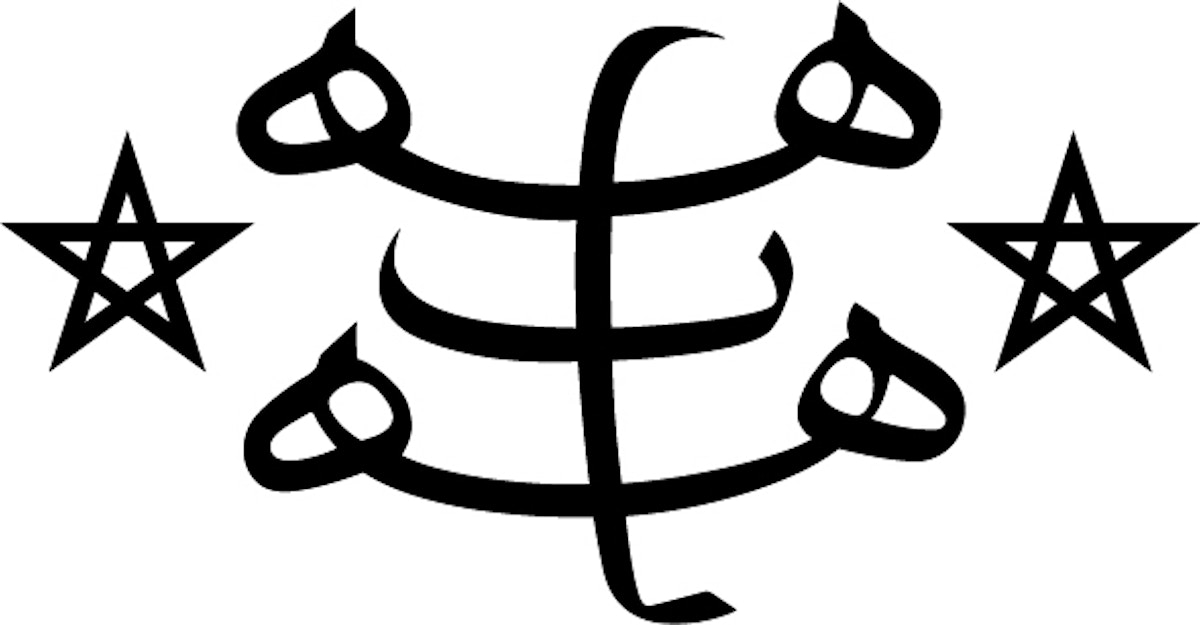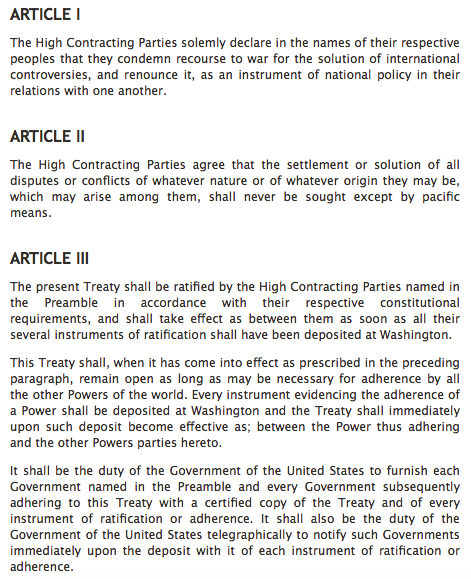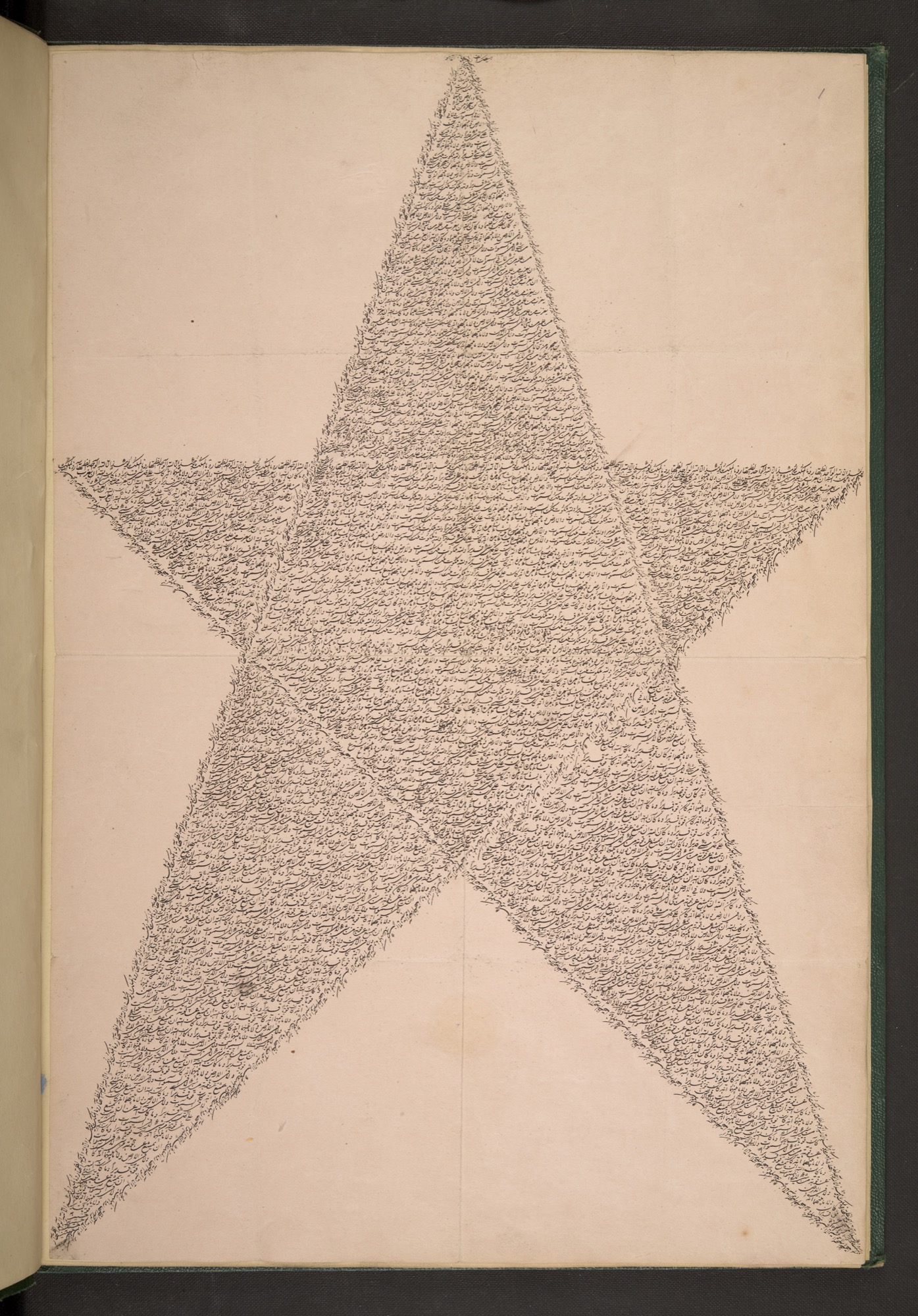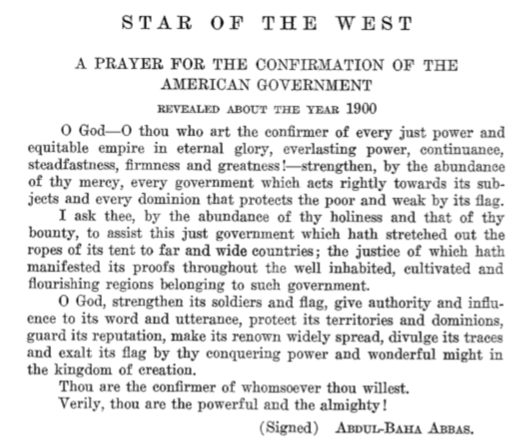

The Shrine of The Bab Constructed by Abdu’l-Baha’ in 1909 on Mount Carmel above Haifa, Israel.
O LORD! Unto Thee I repair for refuge and toward all Thy signs I set my heart.
O Lord! Whether traveling or at home, and in my occupation or in my work, I place my whole trust in Thee.
Grant me then Thy sufficing help so as to make me independent of all things, O Thou Who art unsurpassed in Thy mercy!
Bestow upon me my portion, O Lord, as Thou pleasest, and cause me to be satisfied with whatsoever Thou hast ordained for me.
Thine is the absolute authority to command.
The Bab
*
I BEG Thy forgiveness, O my God, and implore pardon after the manner Thou wishest Thy servants to direct themselves to Thee. I beg of Thee to wash away our sins as befitteth Thy Lordship, and to forgive me, my parents, and those who in Thy estimation have entered the abode of Thy love in a manner which is worthy of Thy transcendent sovereignty and well beseemeth the glory of Thy celestial power.
O my God! Thou hast inspired my soul to offer its supplication to Thee, and but for Thee, I would not call upon Thee. Lauded and glorified art Thou; I yield Thee praise inasmuch as Thou didst reveal Thyself unto me, and I beg Thee to forgive me, since I have fallen short in my duty to know Thee and have failed to walk in the path of Thy love.
The Bab
*****
Alas, alas, for that which befell Him Who was the Manifestation of the Self of God, and for that which He and His loved ones were made to suffer! The people inflicted upon them what no soul hath ever inflicted upon another, and what no infidel hath wrought against a believer or suffered at his hand. Alas, alas! That immortal Being sat upon the darksome dust, the Holy Spirit lamented in the retreats of glory, the pillars of the Throne crumbled in the exalted dominion, the joy of the world was changed into sorrow in the crimson land, and the voice of the Nightingale was silenced in the golden realm. Woe betide them for what their hands have wrought and for what they have committed!
Baha’u’llah-Gems of Divine Mysteries
*****
Now the Siyyid Báb had disposed all His affairs before setting out from Chihríq towards Tabríz, had placed His writings and even His ring and pen-case in a specially prepared box, put the key of the box in an envelope, and sent it by means of Mullá Báqir, who was one of His first associates, to Mullá ‘Abdu’l-Karím of Qazvín. This trust Mullá Báqir delivered over to Mullá ‘Abdu’l-Karím at Qum in presence of a numerous company. At the solicitations of those present he opened the lid of the box and said, “I am commanded to convey this trust to Bahá’u’lláh: more than this ask not of me, for I cannot tell you.” Importuned by the company, he produced a long epistle in blue, penned in the most graceful manner with the utmost delicacy and firmness in a beautiful minute shikastih hand, written in the shape of a man so closely that it would have been imagined that it was a single wash of ink on the paper. When they had read this epistle [they perceived that] He had produced three hundred and sixty derivatives from the word Bahá. Then Mullá ‘Abdu’l-Karím conveyed the trust to its destination.
Well, we must return to our original narrative. The Prime Minister issued a second order to his brother Mírzá Ḥasan Khán, the gist of which order was this: “Obtain a formal and explicit sentence from the learned doctors of Tabríz who are the firm support of the Church of Ja’far (upon him be peace) and the impregnable stronghold of the Shí‘ite faith; summon the Christian regiment of Urúmíyyih; suspend the Báb before all the people; and give orders for the regiment to fire a volley.”
Mírzá Ḥasan Khán summoned his chief of the farráshes, and gave him his instructions. They removed the Báb’s turban and sash which were the signs of His Siyyid-hood, brought Him with four of His followers to the barrack square of Tabríz, confined Him in a cell, and appointed forty of the Christian soldiers of Tabríz to guard Him.
Next day the chief of the farráshes delivered over the Báb and a young man named Áqá Muḥammad-‘Alí who was of a noble family of Tabríz to Sám Khán, colonel of the Christian regiment of Urúmíyyih, at the sentences of the learned divine Mullá Muḥammad of Mamaqán, of the second ecclesiastical authority Mullá Mírzá Báqir, and of the third ecclesiastical authority Mullá Murtadá-Qulí and others. An iron nail was hammered into the middle of the staircase of the very cell wherein they were imprisoned, and two ropes were hung down. By one rope the Báb was suspended and by the other rope Áqá Muḥammad-‘Alí, both being firmly bound in such wise that the head of that young man was on the Báb’s breast. The surrounding housetops billowed with teeming crowds. A regiment of soldiers ranged itself in three files. The first file fired; then the second file, and then the third file discharged volleys. From the fire of these volleys a mighty smoke was produced. When the smoke cleared away they saw that young man standing and the Báb seated by the side of His amanuensis Áqá Siyyid Ḥusayn in the very cell from the staircase of which they had suspended them. To neither one of them had the slightest injury resulted.
Sám Khán the Christian asked to be excused; the turn of service came to another regiment, and the chief of the farráshes withheld his hand. Áqá Ján Big of Khamsíh, colonel of the bodyguard, advanced; and they again bound the Báb together with that young man to the same nail. The Báb uttered certain words which those few who knew Persian understood, while the rest heard but the sound of His voice.
The colonel of the regiment appeared in person: and it was before noon on the twenty-eighth day of Sha’bán in the year [A.H.] one thousand two hundred and sixty-six. Suddenly he gave orders to fire. At this volley the bullets produced such an effect that the breasts [of the victims] were riddled, and their limbs were completely dissected, except their faces, which were but little marred.
Then they removed those two bodies from the square to the edge of the moat outside the city, and that night they remained by the edge of the moat. Next day the Russian consul came with an artist and took a picture of those two bodies in the posture wherein they had fallen at the edge of the moat.
On the second night at midnight the Bábís carried away the two bodies.
On the third day the people did not find the bodies, and some supposed that the wild beasts had devoured them, so that the doctors proclaimed from the summits of their pulpits saying, “The holy body of the immaculate Imám and that of the true Shí‘ite are preserved from the encroachments of beasts of prey and creeping things and wounds, but the body of this person have the wild beasts torn in pieces.” But after the fullest investigation and inquiry it hath been proved that when the Báb had dispersed all His writings and personal properties and it had become clear and evident from various signs that these events would shortly take place, therefore, on the second day of these events, Sulaymán Khán the son of Yaḥyá Khán, one of the nobles of Ádhirbáyján devoted to the Báb, arrived, and proceeded straightway to the house of the mayor of Tabríz. And since the mayor was an old friend, associate, and confidant of his; since, moreover, he was of the mystic temperament and did not entertain aversion or dislike for any sect, Sulaymán Khán divulged this secret to him saying, “Tonight I, with several others, will endeavor by every means and artifice to rescue the body. Even though it be not possible, come what may we will make an attack, and either attain our object or pour out our lives freely in this way.” “Such troubles,” answered the mayor, “are in no wise necessary.” He then sent one of his private servants named Ḥájí Alláh-Yár, who, by whatever means and proceedings it was, obtained the body without trouble or difficulty and handed it over to Ḥájí Sulaymán Khán. And when it was morning the sentinels, to excuse themselves, said that the wild beasts had devoured it. That night they sheltered the body in the workshop of a Bábí of Milán: next day they manufactured a box, placed it in the box, and left it as a trust. Afterwards, in accordance with instructions which arrived from Ṭihrán, they sent it away from Ádhirbáyján. And this transaction remained absolutely secret.
Abdu’l-Baha’
Exc. from: A Traveler’s Narrative-Written to Illustrate the Episode of the Bab
*****
The farrásh-báshí had abruptly interrupted the last conversation which the Báb was confidentially having in one of the rooms of the barracks with His amanuensis Siyyid Ḥusayn, and was drawing the latter aside, and severely rebuking him, when he was thus addressed by his Prisoner: “Not until I have said to him all those things that I wish to say can any earthly power silence Me. Though all the world be armed against Me, yet shall it be powerless to deter Me from fulfilling, to the last word, My intention.” To the Christian Sám Khán—the colonel of the Armenian regiment ordered to carry out the execution—who, seized with fear lest his act should provoke the wrath of God, had begged to be released from the duty imposed upon him, the Báb gave the following assurance: “Follow your instructions, and if your intention be sincere, the Almighty is surely able to relieve you of your perplexity.”
Sám Khán accordingly set out to discharge his duty. A spike was driven into a pillar which separated two rooms of the barracks facing the square. Two ropes were fastened to it from which the Báb and one of his disciples, the youthful and devout Mírzá Muḥammad-‘Alí-i-Zunúzí, surnamed Anís, who had previously flung himself at the feet of his Master and implored that under no circumstances he be sent away from Him, were separately suspended. The firing squad ranged itself in three files, each of two hundred and fifty men. Each file in turn opened fire until the whole detachment had discharged its bullets. So dense was the smoke from the seven hundred and fifty rifles that the sky was darkened. As soon as the smoke had cleared away the astounded multitude of about ten thousand souls, who had crowded onto the roof of the barracks, as well as the tops of the adjoining houses, beheld a scene which their eyes could scarcely believe.
The Báb had vanished from their sight! Only his companion remained, alive and unscathed, standing beside the wall on which they had been suspended. The ropes by which they had been hung alone were severed. “The Siyyid-i-Báb has gone from our sight!” cried out the bewildered spectators. A frenzied search immediately ensued. He was found, unhurt and unruffled, in the very room He had occupied the night before, engaged in completing His interrupted conversation with His amanuensis. “I have finished My conversation with Siyyid Ḥusayn” were the words with which the Prisoner, so providentially preserved, greeted the appearance of the farrásh-báshí, “Now you may proceed to fulfill your intention.” Recalling the bold assertion his Prisoner had previously made, and shaken by so stunning a revelation, the farrásh-báshí quitted instantly the scene, and resigned his post.
Sám Khán, likewise, remembering, with feelings of awe and wonder, the reassuring words addressed to him by the Báb, ordered his men to leave the barracks immediately, and swore, as he left the courtyard, never again, even at the cost of his life, to repeat that act. Áqá Ján-i-Khamsíh, colonel of the body-guard, volunteered to replace him. On the same wall and in the same manner the Báb and His companion were again suspended, while the new regiment formed in line and opened fire upon them. This time, however, their breasts were riddled with bullets, and their bodies completely dissected, with the exception of their faces which were but little marred. “O wayward generation!” were the last words of the Báb to the gazing multitude, as the regiment prepared to fire its volley, “Had you believed in Me every one of you would have followed the example of this youth, who stood in rank above most of you, and would have willingly sacrificed himself in My path. The day will come when you will have recognized Me; that day I shall have ceased to be with you.”
Nor was this all. The very moment the shots were fired a gale of exceptional violence arose and swept over the city. From noon till night a whirlwind of dust obscured the light of the sun, and blinded the eyes of the people. In Shíráz an “earthquake,” foreshadowed in no less weighty a Book than the Revelation of St. John, occurred in 1268 A.H. which threw the whole city into turmoil and wrought havoc amongst its people, a havoc that was greatly aggravated by the outbreak of cholera, by famine and other afflictions. In that same year no less than two hundred and fifty of the firing squad, that had replaced Sám Khán’s regiment, met their death, together with their officers, in a terrible earthquake, while the remaining five hundred suffered, three years later, as a punishment for their mutiny, the same fate as that which their hands had inflicted upon the Báb. To insure that none of them had survived, they were riddled with a second volley, after which their bodies, pierced with spears and lances, were exposed to the gaze of the people of Tabríz. The prime instigator of the Báb’s death, the implacable Amír-Nizám, together with his brother, his chief accomplice, met their death within two years of that savage act.
On the evening of the very day of the Báb’s execution, which fell on the ninth of July 1850 (28th of Sha’bán 1266 A.H.), during the thirty-first year of His age and the seventh of His ministry, the mangled bodies were transferred from the courtyard of the barracks to the edge of the moat outside the gate of the city. Four companies, each consisting of ten sentinels, were ordered to keep watch in turn over them. On the following morning the Russian Consul in Tabríz visited the spot, and ordered the artist who had accompanied him to make a drawing of the remains as they lay beside the moat. In the middle of the following night a follower of the Báb, Ḥájí Sulaymán Khán, succeeded, through the instrumentality of a certain Ḥájí Alláh-Yár, in removing the bodies to the silk factory owned by one of the believers of Milán, and laid them, the next day, in a specially made wooden casket, which he later transferred to a place of safety. Meanwhile the mullás were boastfully proclaiming from the pulpits that, whereas the holy body of the Immaculate Imám would be preserved from beasts of prey and from all creeping things, this man’s body had been devoured by wild animals. No sooner had the news of the transfer of the remains of the Báb and of His fellow-sufferer been communicated to Bahá’u’lláh than He ordered that same Sulaymán Khán to bring them to Ṭihrán, where they were taken to the Imám-Zádih-Ḥasan, from whence they were removed to different places, until the time when, in pursuance of ‘Abdu’l-Bahá’s instructions, they were transferred to the Holy Land, and were permanently and ceremoniously laid to rest by Him in a specially erected mausoleum on the slopes of Mt. Carmel.
Thus ended a life which posterity will recognize as standing at the confluence of two universal prophetic cycles, the Adamic Cycle stretching back as far as the first dawnings of the world’s recorded religious history and the Bahá’í Cycle destined to propel itself across the unborn reaches of time for a period of no less than five thousand centuries. The apotheosis in which such a life attained its consummation marks, as already observed, the culmination of the most heroic phase of the Heroic Age of the Bahá’í Dispensation. It can, moreover, be regarded in no other light except as the most dramatic, the most tragic event transpiring within the entire range of the first Bahá’í century. Indeed it can be rightly acclaimed as unparalleled in the annals of the lives of all the Founders of the world’s existing religious systems.
Shoghi Effendi-God Passes By, Chapter IV: The Execution Of The Bab; excerpt.
*****
The Three Articles of the League of Nations Covenant #2137 Outlawing War. It is Long Overdue that we Call on All Signatory Nations to Come Together and Elect the Committee To End War to Activate This Binding Covenant of Peace and Friendship, the Covenant of Lasting Peace

The Twelve Basic Principles of the Baha’i Faith







